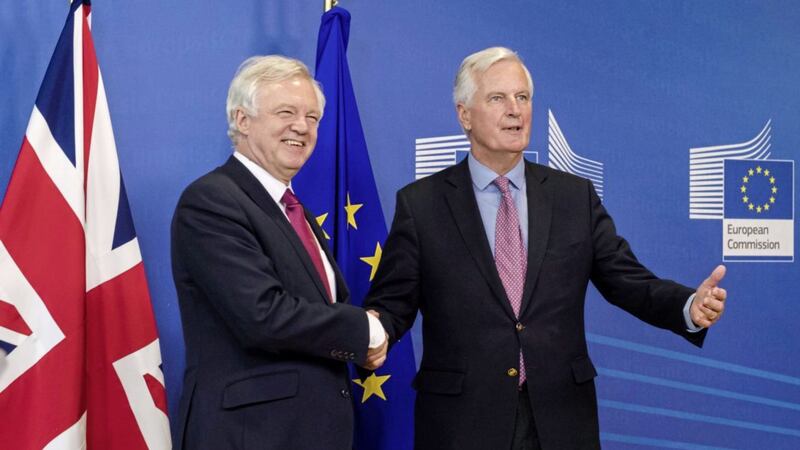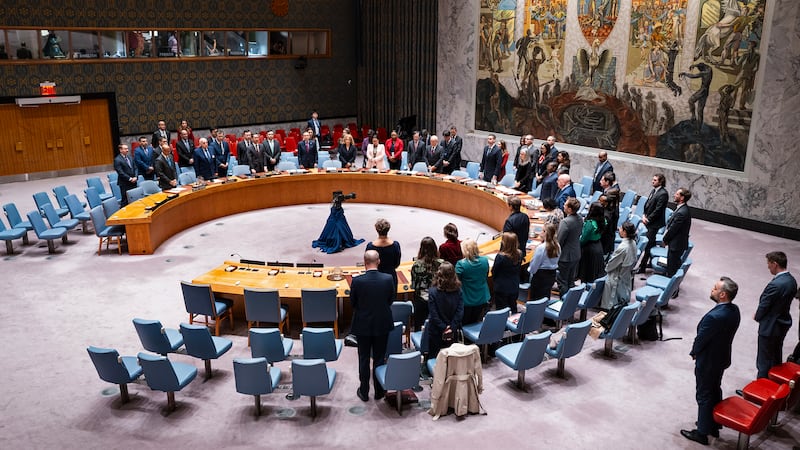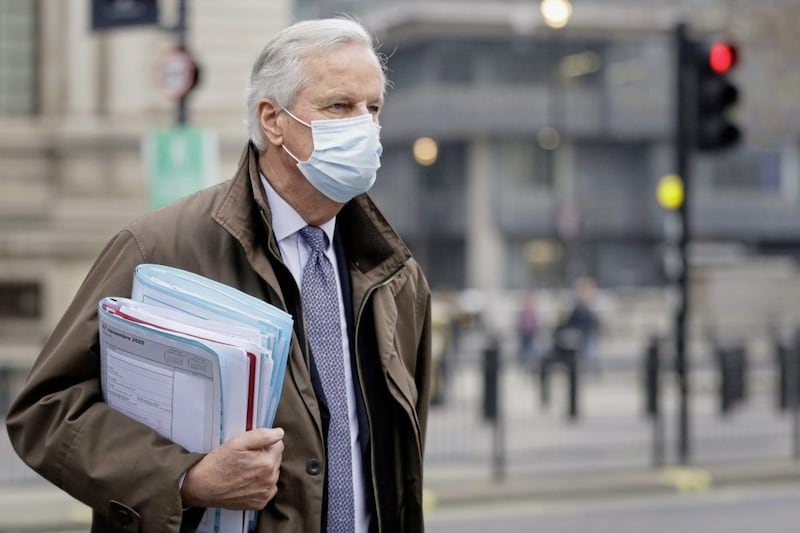THE "very sensitive" issue of the Irish border may not be resolved until near the end of the Brexit talks, David Davis has acknowledged.
The issue dominated the opening day of Brexit negotiations between the UK and the European Union yesterday.
Mr Davis, the Brexit Secretary, said it could take "until the end of the process" to resolve the issue, because it will be tied in with the trade and customs deals the UK is able to strike with Brussels.
Both the UK and EU have said they are determined to avoid the return of a hard border or anything that could undermine the Good Friday Agreement.
At a press conference in Brussels, Mr Davis said: "We discussed two aspects of it. One of course is the political sensitivities which everybody understands.
"The other is the determination to maintain an, as near as possible, invisible border so we do not undermine the peace process, do not provide any cause for concern in Northern Ireland.
"This is a technically difficult issue but it is one which I am certain is soluble, although it will probably take us until the end of the process when we have already decided what our customs and free trade arrangements are."
EU's chief Brexit negotiator Michel Barnier, who was a senior EU official involved in the peace process, acknowledged that "this is one of the most sensitive issues before us" and there was an "awful lot of work to do".
The situation could be complicated by the potential deal between Theresa May's Tories and the DUP as she seeks support for her minority administration in Westminster.
Mr Barnier said: "There is a very, very sensitive political dimension to this.
"The new Northern Irish executive needs to be set up in a few days' time, at the same time we have a new government and a new Taoiseach in Dublin and of course there are the ongoing political discussion in London which we are also following closely."
He said the EU wanted to "preserve all the dimensions and commitments of the Good Friday Agreement" and maintain the UK-Ireland common travel area.
"The other problem in parallel with that is that without creating a new hard border, at the same time we have to come up with solutions - especially for goods and services - but in a way that is compliant with the normal rules and integrity of the internal market," he said.
"So we have got a very sensitive political context, a very clear objective which is to preserve all the dimensions of the Good Friday Agreement and we have an awful lot of work to do - bilaterally, and also in coordination with the Dublin government on my side, so that we come up with imaginative and concrete solutions along the lines I have described, particularly taking into account the single market."
A special dialogue involving senior negotiators from each side has been set up to consider the issue, with Mr Davis' official Olly Robbins holding talks with Mr Barnier's deputy Sabine Weyand on the issue.
Officials are hopeful that there can be swift progress on some areas of the border problem but Mr Davis acknowledged the issue as a whole "will take some considerable time".
Mr Davis denied that the way the issue was being handled was due to the potential deal with the DUP at Westminster.
"It has absolutely nothing to do with any negotiations inside the House of Commons," he insisted.
Meanwhile, Mr Barnier said he believed a "fair" deal was possible for both sides but he made clear the talks, beginning a year after the UK's Brexit referendum, would take place according to a timetable set by the EU.
"I will display a constructive attitude firmly based on the interests and support of the 27," he said.








